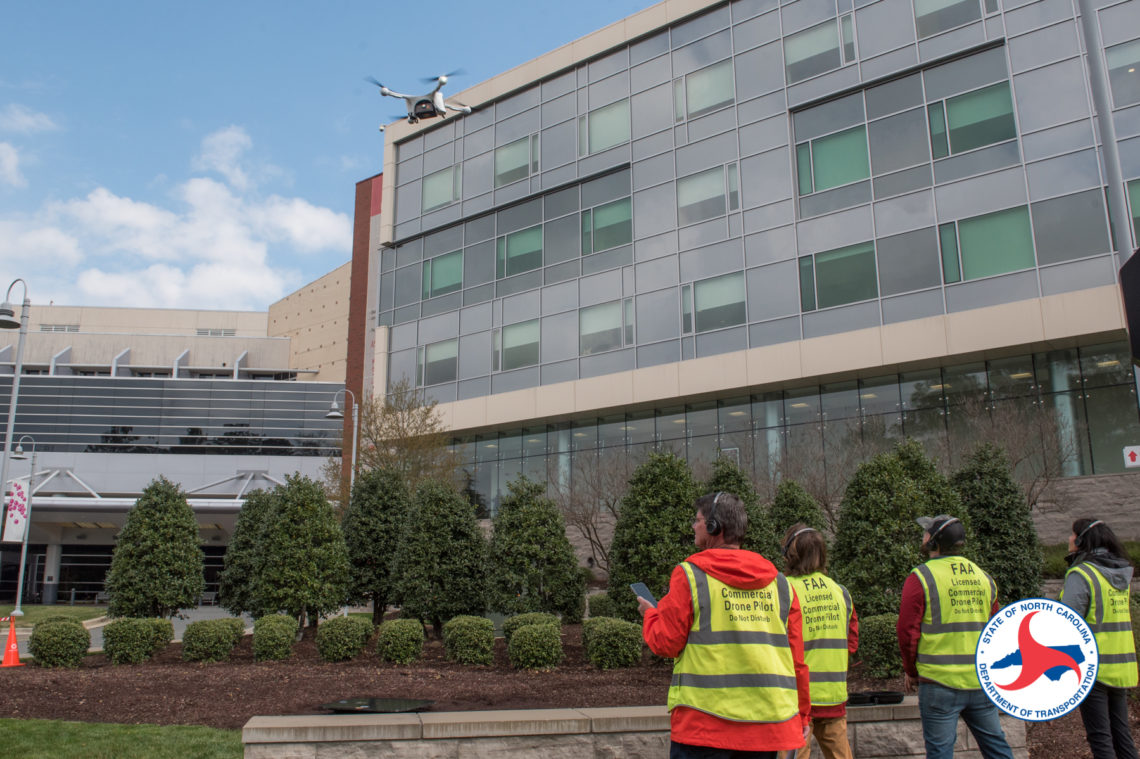
Putting Drones to Work in North Carolina
In response to the devastating impact of Hurricane Florence in 2018, the N. C. Department of Transportation deployed Unmanned Aircraft Systems, or drones, to assess the damage to infrastructure and hundreds of roads that were closed because of flooding and downed trees and power lines. This $430,000 project allowed drone-collected data, images and video to be shared with federal, state and local emergency responders through a custom-designed online dashboard.
The online feature also allowed the information to be shared with the public through traditional and social media.
NCDOT flew more than 260 drone missions and captured more than 8,000 videos and photos of roads, bridges and dams. This helped government agencies assess conditions quickly, deploy emergency responders efficiently, and divert traffic from damaged areas. The drones assisted first responders and helped authorities assess critical issues and allocate resources more efficiently in damaged areas.
NCDOT also is one of nine national participants in the Federal Aviation Administration’s Unmanned Aircraft Systems Integration Pilot Program, a three-year effort to launch drone programs and gather data for future rule-making around the emerging technology. Through the program, NCDOT has partnered with UPS, drone-maker Matternet and WakeMed Health and Hospitals in the creation of the nation’s first fully-operational commercial drone delivery service. At WakeMed’s main campus in Raleigh, a drone carries blood and other medical samples from one part of the hospital to another, shaving precious minutes off potentially life-saving test results. In the future, the program will expand to fly samples across WakeMed’s county-wide network of hospitals and clinics.
Read additional stories from this state:
- Improving I-26 Through the North Carolina Mountains
- Making Multiple Improvements via a Single Bridge Project
- Raleigh and Charlotte Stations Anchor Downtown Vitality and Statewide Rail Service
- Salem Parkway: Creating a Downtown Gateway
- US 70 Havelock Bypass Project Protects Sensitive Longleaf Pine Habitat


